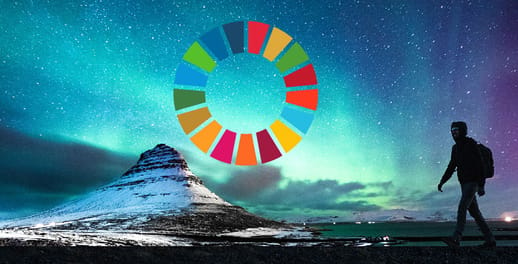Get Focus insights straight to your inbox
If you’re the primary earner in your household, you’re probably financially responsible for more than just yourself and / or your partner. You may be what some researchers call a 'Sandwich' or a 'Big Mac': Sandwiches are earners who provide support downwards to children, upwards to parents and possibly horizontally to a spouse; Big Macs provide for more than two 'layers' of support, irrespective of whether they have children or not, including spouses, children, parents, siblings or even staff. The more successful you are, the greater the responsibility to care for those who depend on you.
This is the network of responsibility that many primary earners find themselves in, and it’s complicated by living in one of the most uncertain times of the last few decades. In fact, the research shows that our top concerns – whether financial, economic or health-related – shift with the evolution of uncertainty.
The uncertainty of the present moment
By the end of 2019, global uncertainty was said to be at a 60-year high. Even before Covid-19 hit, we witnessed an increasing trade war between the US and China, an on-again/off-again Brexit (with questions about the future of the EU) and mass-scale protests in Hong Kong, Iran, Nigeria, Thailand and Chile. “If I had to identify the dominant theme at the outset of the new decade,” said a very prescient Kristalina Georgieva, MD of the IMF in January, “it would be increasing uncertainty."
Much like realising that the peak of one mountain is simply the base of another, 2020 has only amplified all our anxieties about the future. We are still the most concerned about losing our jobs, being the victim of crime and the impact of corruption on the future of the country. Covid-19 hasn’t meaningfully changed our concerns, it has only altered the gravity of them. Before Covid-19, fewer than 10% of those surveyed were concerned about their health, compared with 33% after Covid-19. Still, the major concern (71%) was for other peoples’ health.
Said one respondent: “I’m as concerned as I was before, plus interest. I’m more concerned about my parents than I’ve ever been before – I’m thinking about their health in more detail than ever before.”
Across the young professionals, young families and established families in our research, the health of others was of greater concern than one’s own health.
So, who are these “other people”? We know they’re defined much more broadly than our blood relatives. They are our “colony” – a set of flexible and overlapping lines of human connection and relationship to which we feel responsible. One respondent called it “the small army that holds you together in your time of need”; another called it “the people you do life with, good and bad.”
Every client of ours represents and is responsible for their colony, and financial provisions flow in multiple directions wherever the need arises. Among our sample, 162 people were supported by just 42 salaries. This “burden” however is thought of as a privilege, even though it means that the loss of a primary earner’s income can be devastating to the many who rely on it.
Making financial provision is complicated – sometimes it’s based on blood, sometimes friendship, sometimes duty. And despite the suffocating uncertainty in the world right now, it’s worth remembering that risk is always with us, even if that risk is concentrated around primary breadwinners. Our role is to plan for it appropriately.
1Dcoded Insights Report, May 2020, Primary Research conducted for Investec Life
2Ahir, H, N Bloom, and D Furceri (2018), “World Uncertainty Index”, Stanford mimeo.
Investec Life Limited is an authorised Financial Services Provider 47702.




